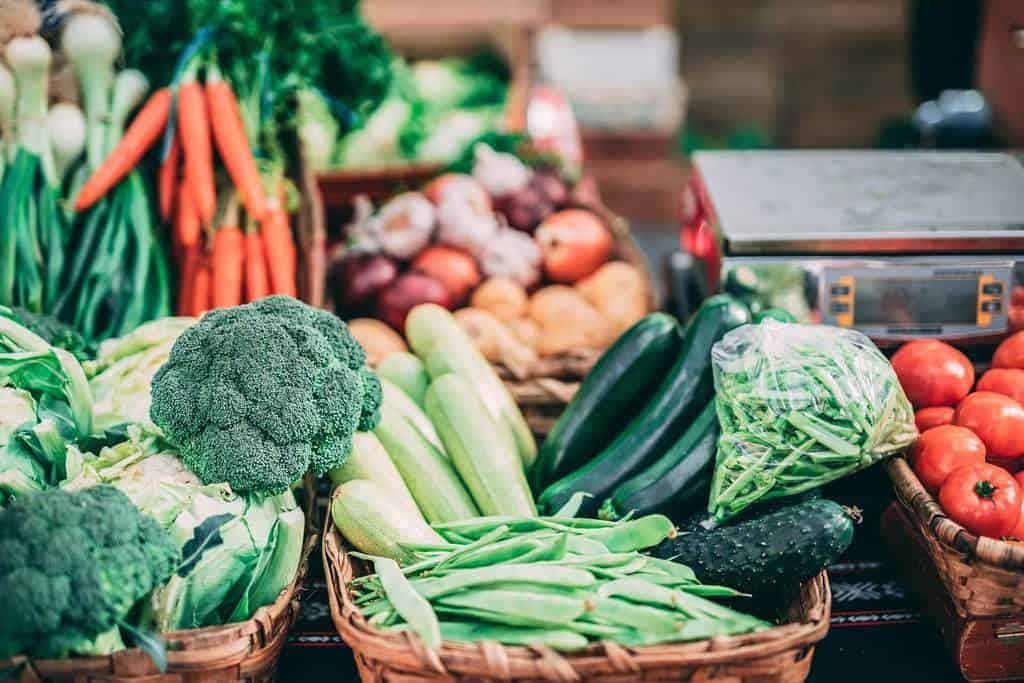As the cold weather starts to bite, is there anything we can do to protect ourselves from illness during the winter months?
In this article, we will be taking a look at whether diet can stave off winter illness and how to implement some simple steps for improved diet and health.
Frustrated with food waste or don't know where to start with a shopping list? Try a food subscription box to wash those worries away and put your diet - and finances - on the right track!
Can diet stave off winter illness?
Eating more fruit and vegetables can help stave off some illnesses. Still, if you’re expecting to eat a cabbage and become invulnerable to disease, you’re going to be disappointed.
It’s about finding a balance between protecting yourself through diet and following practical measures such as washing your hands.
Should you diet?
Being overweight can increase your risk of illness, as you would expect. But did you know that dieting can negatively affect your immune system?
Going on a diet is seen by many people to be the ultimate way to improve your health. Within reason, this can be true, but the more extreme your diet, the worse it can be for you.
An extreme diet can slow your metabolism, increase fatigue, and weaken your immune system. A 2008 study on Olympic athletes saw a 17% increase in reported illness in athletes who were dieting.
Another issue with diets is that they can be overly restrictive, meaning that you may miss out on specific vitamins and minerals. If you gave up meat, for example, you would be in danger of becoming deficient in vitamin B12.
On the flip side, being overweight can negatively affect your immune system too. In 2009, during the H1N1 pandemic, Spanish doctors noticed that obese patients had the virus for longer, and were more likely to die from it.
But what does this mean for you?
If you are overweight or obese, then following a calorie-controlled diet might be a good idea. However, make sure that the diet is not too extreme, and ensure your diet is varied with lots of fruit and vegetables.
If you are already lean and want to get even leaner, then perhaps wait until the spring before dieting. You don't want to compromise your immune system through the winter!
How to improve your diet this winter
The chances are that you already have a good idea of exactly how to improve your diet. That's the thing; everyone knows what they need to do, but doing it isn’t easy!
- Eat more fruit and vegetables.
- Avoid over-indulging in high-calorie snacks and alcohol.
- Control your portion sizes.
- Avoid following extreme diet fads.
Adherence is crucial; there is no point throwing out all your KitKats on Monday if you’re giving up on Saturday.
This means we need to be strategic. Don’t try and perform a dieting 180 right out the gate. Focus on small yet significant changes you can see yourself doing for a prolonged period.
You can:
- Try to add one more piece of fruit or vegetable to your daily diet.
- Analyse your snacking habits and see if you can reduce it by 10-20% (if you want weight loss).
- Increase your daily protein (ideally at breakfast or lunch).
Foods that can improve your immune system
While we have stressed the fact that your diet is not going to help 100% prevent you from becoming ill, some foods can help to reduce how long you're sick. Here are five foods that you should consider adding to your diet.
- Citrus Fruits – Vitamin C is often overrated in terms of importance. Increasing your vitamin C intake will NOT improve your immune system. However, some studies have shown vitamin C can shorten the duration of a cold and reduce symptoms.
- Garlic – There is some evidence that garlic may improve your immune system, helping it to fight off germs and reduce inflammation.
- Ginger – As with garlic, ginger may help to reduce inflammation and pain, which can help the body to fight off infection and to mitigate the effects of a cold.
- Turmeric – Very popular in Ayurvedic medicine, turmeric is often prescribed in India for colds and sore throats. The active ingredient, curcumin certainly has a lot of evidence behind it. It may make more sense to take curcumin directly as a supplement, but adding turmeric to your diet may help to prevent you catching a cold.
- Chicken Stock – Another traditional “cure” for the common cold that may have some basis in science. Not only do you get the benefits of the bones (collagen and vitamin B6, for example), but there are also the benefits from vegetables and herbs that you add to the stock.
As you can see, these ingredients are easy enough to add to your weekly recipes. You could make a curry that contains garlic, ginger, turmeric, and onions. Add some sweet potato (for the vitamin C) and some chicken stock, and you’ve got the ultimate immune system supporting curry!
We spoke to Lorraine Cooney from Guttastic, who told Health Times: "Diet plays a large role in determining what kinds of microbes live in our intestines. Scientists are finding that these microbes play a key role in immune function. A high-fibre plant-rich diet is the key to helping these microbes bolster immune function, meaning that although including a variety of fruits and vegetables is good, also including wholegrains, nuts, seeds, beans, and pulses is superior!"
Will my diet prevent illness?
No. Your diet might slightly reduce the duration and the severity of an illness once you've got it, which is beneficial, but not the same as prevention.
When it comes to avoiding illness, you're going to have to stick with familiar practices of washing your hands, avoiding crowded areas, and trying not to let people cough in your face!
You should focus on improving your diet for all the tremendous benefits associated with it, but don't expect it to turn you into an illness-destroying machine.









